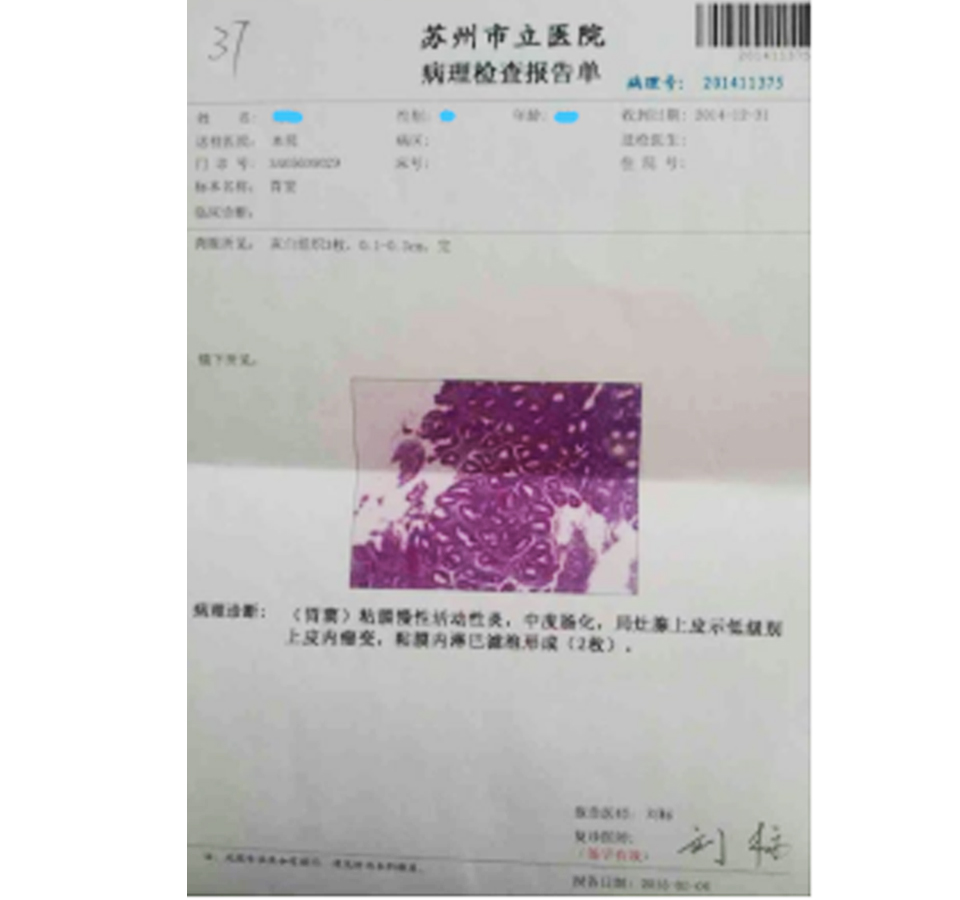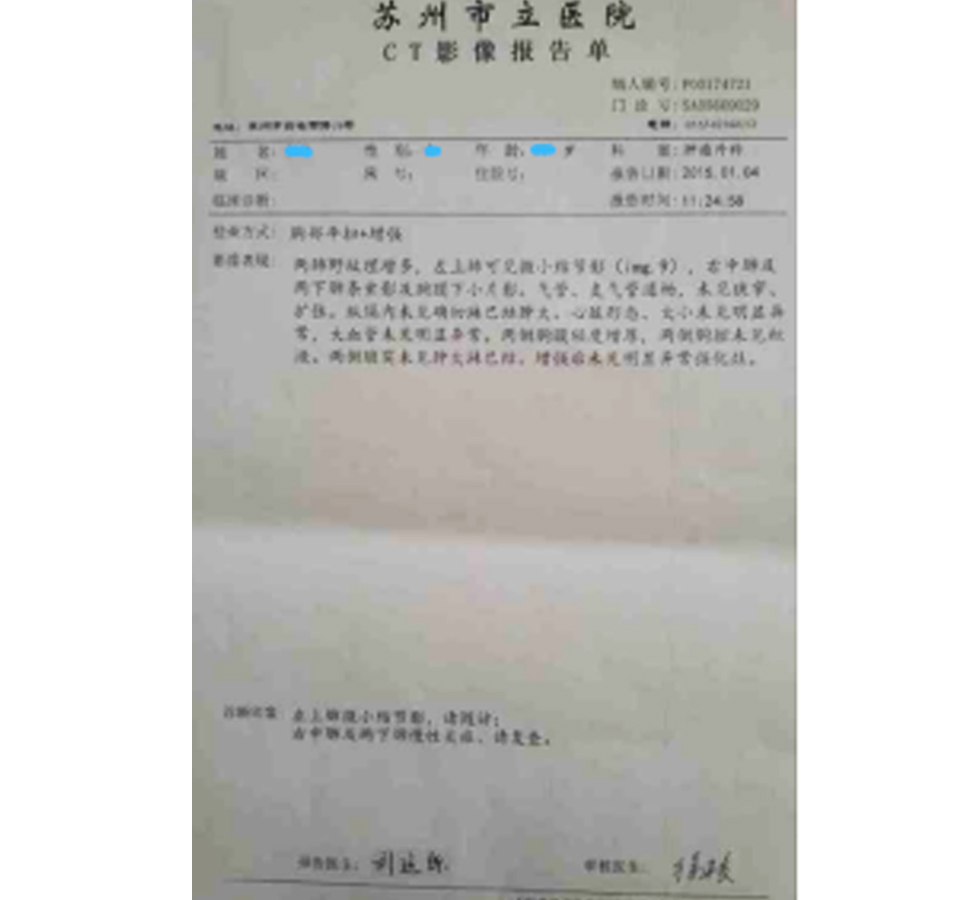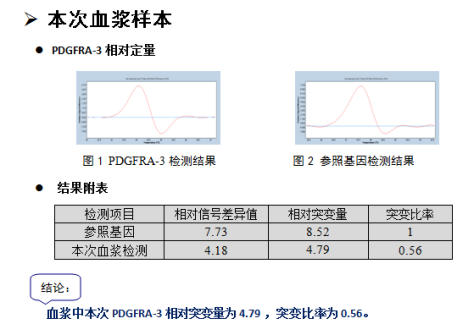Ms. Zhang, 45 years old, lives in Suzhou and is an executive of a listed company. Ms. Zhang and her husband have two children. She is the envy of countless friends around her with her vigorous behavior and bright appearance. However, Ms. Zhang herself knows that the sky above this happy life is always shrouded in a dark cloud, and it may be completely washed away by the heavy rain at some point. The cloud that accumulated in Ms. Zhang's heart was called cancer.
The first time Ms. Zhang really learned about cancer was when she just graduated from school. From the conversation between her parents, she learned that her uncle was suffering from a disease called "non-small cell lung cancer", and patients with this disease needed to spend a lot of money for treatment. However, two years later, my uncle left, leaving behind my aunt and my son, who is still in high school.
After marriage, Ms. Zhang came to Suzhou with her husband. To be strong, she hopes to have her own career. She never says no to work. Her busy work also reduces the communication between Ms. Zhang and her parents. Later, Ms. Zhang and Mr. Zhang had two children of their own, and their careers were smooth sailing. However, one morning in the summer of 2007, a phone call from my mother broke the originally beautiful life. Ms. Zhang's father was diagnosed with "prostate neuroendocrine cancer", which was already at an advanced stage. Because the old man's health has not been good, the doctor did not recommend surgery. After 8 months, the old man left. However, the cloud of cancer did not dissipate. In November of the same year, Ms. Zhang's uncle was diagnosed with bone cancer.
Since then, the annual physical examination has become the most important thing for Ms. Zhang's family. On December 11, 2014, by chance, Ms. Zhang heard about Microdiag's preMeD ultra-early tumor screening technology, so she and her family made an appointment for testing through Pu Shihuakang (Shanghai) Medical Technology Co., Ltd. After several days of waiting, Ms. Zhang got the test report of the whole family. Unfortunately, in Ms. Zhang's personal report, there was a mutation in the PDGFRA gene, which is associated with gastric cancer, colorectal cancer, bladder cancer, endometrial cancer, lung cancer, and brain glioma. Interpretation experts reviewed Ms. Zhang's physical examination reports in the past 4 years and found that Ms. Zhang suffered from breast hyperplasia, uterine fibroids, and had surgically removed the gallbladder. However, in Ms. Zhang's physical examination report this year, the results of mammography and B-ultrasound showed that there were no obvious signs of malignant transformation in the lesions of the breast and uterus, so it was recommended that Ms. Zhang carry out gastroenteroscopy and chest CT for further investigation. 3 weeks later, Ms. Zhang underwent gastroscopy and chest CT at Suzhou Municipal Hospital. The results showed that there was a lesion in the gastric antrum, moderate intestinal metaplasia, focal glandular epithelium showing low-grade intraepithelial neoplasia, and the formation of intramucosal lymphoid follicles ( 2), and a tiny nodule was found in the upper left lung.
During the customer service return visit, Ms. Zhang said with emotion that, for her, "suffering from cancer" is not an unacceptable thing. Having experienced the illness of several relatives, she knows that cancer may come to her at some point. All she can do is enjoy the current life and race against cancer. Cancer is a chronic disease with a course of 20-30 years. She is fed up with the "post-cancer notification" of traditional medicine. She hopes that there will be a way to truly achieve "pre-cancer early warning", so that she and her family have the opportunity to dispel cancer. of dark clouds. The technology of the Microdiag gave her a fair chance to fight against cancer, and she was also confident that she could have the last laugh.
2014.12.31 Clinical examination results after molecular testing: stomach
(Gastric antrum) Mucosal chronic active inflammation, moderate intestinal metaplasia, focal glandular epithelium showing low-grade intraepithelial neoplasia, and intramucosal lymphoid follicle formation (2 pieces)

2014.12.31 Clinical examination results after molecular testing: lung (enhanced CT)
Small nodules in the left upper lung, chronic inflammation in the right middle and lower lungs

December 21, 2014, do mutation quantification:
